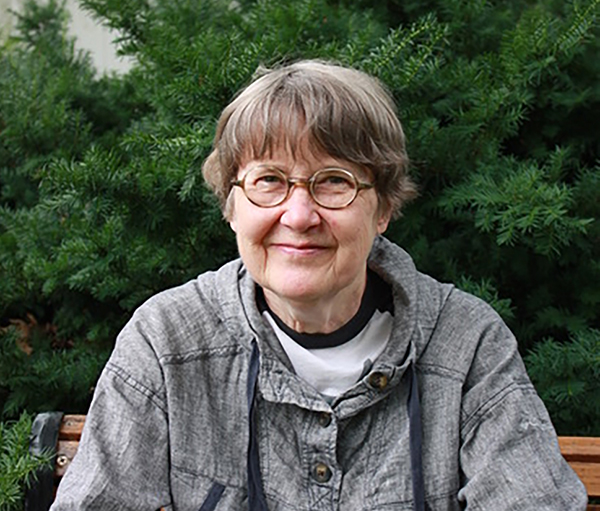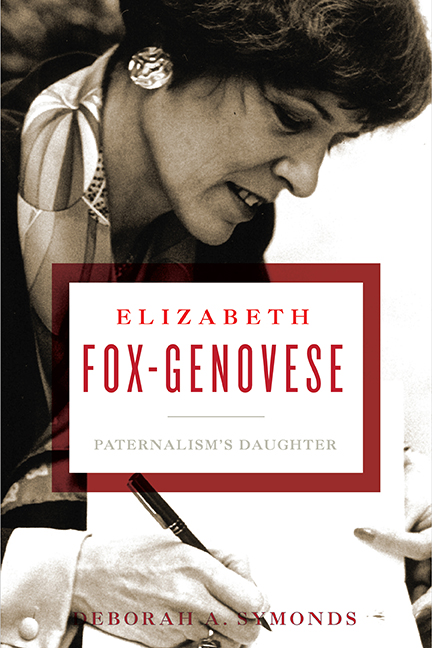Book Talk: Alumna’s work examines life of former Binghamton professor
Historian Elizabeth Fox-Genovese taught at the university from 1980-86

Deborah A. Symonds, MA ’81, PhD ’85, a professor of history at Drake University in Iowa, wrote Elizabeth Fox-Genovese: Paternalism’s Daughter (University of Virginia Press, 2021) about the notorious historian and women’s studies scholar. Fox-Genovese had left-wing views when she taught at Binghamton University from 1980-86, but later became an extreme Catholic conservative. Symonds explored Fox-Genovese’s enormous personal archive, tracing her life from a brilliant girl in the World War II era struggling with demanding parents and anorexia to a woman intellectual in the late 20th century.
Binghamton Magazine: What inspired you to write this book?
Deborah Symonds: I almost said grief, and I did grieve at her death, but also curiosity about the enormous personal archive she left. And she terrified me, like an ancient regime noble whose life was absolutely foreign to me. We were born in the same state, but she was almost a New Yorker, but really a Parisian.
BM: Tell us about your experiences with Professor Fox-Genovese.
DS: She was charismatic, changeable — she often joked about being a Gemini — and I noticed early on that one could not predict her opinions; they were always what one did not expect. I think that she, without admitting it, felt she was walking on thin ice professionally, as many women were in the profession at the time. She supported my dissertation choice, but gave little guidance, as if she was afraid to venture into Scottish history — even though she knew much of the applicable literature from the Scottish Historical School, and from writings on English and French agriculture. She was, to me, an elegant conundrum.
BM: How was she perceived at Binghamton?
DS: Very polarizing, very loyal to friends, hyper-alert to any criticism. It was a drama at times, almost operatic. I stuck to my work, and remained as oblivious as possible to everything else. So what I discovered in writing this book was often shocking to me. She seemed to have an enemies list, but I couldn’t keep up with who was off or on.
BM: What caused her to shift so dramatically from left to right?
DS: That’s a big question, with no easy answer. Much of it has to do with where she found support and an audience. Some, to do with her education, which was tough, old-school and traditional — culturally, she probably always would have fit in with William and Reid Buckley far better than with second-wave feminists, or the leftists of the 1960s and 1970s. She influenced her husband, historian Eugene D. Genovese, enormously in that move to the right.
BM: How do you think she’d fit into academia in 2021?
DS: She wouldn’t. She was already leaving for the life of a public intellectual by the late 1980s, seeking more sympathetic audiences. I think she still had hopes of influence, of bringing remnants of Marxist economic justice to the right, particularly through her conversion to Catholicism. Had she lived longer, she might well have shifted again, but illness and extreme pain foreclosed that.
BM: What can her life teach us about how to live today?
DS: Education matters, both content and form. And her father’s determination to direct his eldest daughter’s life was a significant part of her education; she had early on loved math and science. She applied to a summer academy in the sciences and was accepted, went, but there was not another word about science in her archive. Parents matter. And the prevailing winds of political change were blowing to the right.


